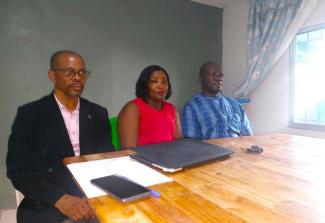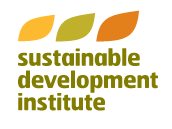
Civil Society and Communities’ Expectations for a Mutually Beneficial EU Forest Partnership for Liberia
Submitted by: The NGO Coalition of Liberia—comprising civil society organizations (CSOs) working in the forest sector and representing forest-dependent communities and indigenous peoples.
1. Introduction and Position
Civil society and communities strongly oppose any move by either the Government of Liberia or the European Union (EU) to cancel the Voluntary Partnership Agreement (VPA).
The VPA has provided Liberia with a robust framework for:
- Accountability and legality assurance in the forest sector.
- Multi-stakeholder participation and transparency.
- Protection of community rights and sustainable forest governance.
Its cancellation would reverse more than a decade of progress.
However, should the cancellation proceed and the EU introduce the Forest Partnership (FP), CSOs and communities expect the FP to be designed and implemented on principles of:
- Inclusive multi-stakeholder governance.
- Robust accountability and transparency.
- Legal and policy coherence.
- Capacity development for all actors.
- Sustainable and accessible financing.
- Protection of forest-dependent communities and indigenous peoples.
Importantly, CSOs and communities maintain that the VPA and FP should coexist, with each reinforcing Liberia’s governance and development priorities.
2. Expectations for a Multistakeholder and Accountable Governance Structure
To ensure legitimacy, the FP must institutionalize inclusive governance that guarantees full participation of CSOs and communities. This includes:
1. A National Multi-Stakeholder Coordination Mechanism bringing together:
- Government institutions (FDA, EPA, NBC, LLA, MFDP, Ministry of Mines & Energy, MOJ, LRA, National Legislature).
- Civil society organizations and community forestry bodies.
2. Clear rules of engagement and decision-making authority, with CSOs and communities holding voting rights and oversight roles.
3. Dedicated seats for CSOs and communities in design and monitoring structures (similar to the Joint Implementation Committee under the VPA).
Such structures will foster trust, reduce conflict, and strengthen rights-based, people-centered governance.
3. Expectations for the FP Content Framework
The FP must be a legally grounded, people-driven framework aligned with Liberia’s governance and development context. Specifically, it should:
1. Recognize and integrate customary land rights under Liberia’s Land Rights Law and Regulations.
2. Incorporate legal and regulatory reforms to make forest governance more community-centered and socially just.
3. Harmonize with existing frameworks, including the VPA and the EU Deforestation Regulation (EUDR).
4. Address agriculture and mining by promoting climate-resilient farming and inclusive land-use planning that mitigates mining-induced deforestation.
5. Make Independent Forest Monitoring (IFM)—led by civil society—central, mandatory, and adequately funded.
6. Include broad civil society participation, with space for gender groups, youth, persons with disabilities, and climate justice advocates.
4. Expectations for Financing Mechanisms
The FP must establish a transparent, predictable, and inclusive financing framework, including:
1. Direct financial support for community forestry governance structures.
2. Dedicated funding for:
- Liberia’s Wood Tracking System (including an EUDR compliance module).
- CSO-led IFM, legal support, and policy advocacy.
3. Multi-year support to CSOs to enable forward planning and impactful programming.
4. A Forest Governance Trust Fund jointly managed by government, civil society, and development partners to finance priority reforms.
5. Expectations for Monitoring and Accountability
The FP must adopt strong accountability measures by:
1. Supporting independent third-party monitoring of FP implementation led by civil society.
2. Establishing community-based grievance redress mechanisms for reporting abuses, illegal logging, or land grabs.
3. Introducing performance indicators and compliance benchmarks, publicly reviewed annually.
4. Ensuring all EU-supported projects undergo independent evaluations, with findings shared publicly and linked to corrective actions.
Transparency and anti-corruption safeguards—such as public access to contracts, benefit-sharing agreements, and carbon financing arrangements—must be non-negotiable.
6. Expectations for Capacity Building
Systematic and long-term capacity development is essential for all stakeholders:
- Government institutions: enforcement, interagency coordination, legal compliance, policy integration.
- Civil society and NGOs: legal analysis, forest monitoring, gender advocacy, climate-smart land use, traceability systems.
- Community-based structures: forest management, participatory land-use planning, contract negotiation, benefit-sharing.
- Private sector: compliance with EUDR, environmental and social safeguards, corporate transparency.
Capacity building must prioritize inclusion of women, youth, and marginalized groups, and be anchored in local institutions.
7. Expectations for Full-Government Engagement and Policy Coherence
The FP should be a “whole-of-government” effort to avoid fragmentation. CSOs expect:
1. High-level political commitment and cross-sectoral collaboration.
2. Alignment of FP with agriculture, mining, climate, finance, justice, and land policies.
3. Integrated land use planning to prevent deforestation and safeguard community tenure.
4. Linkages between the FP and national development strategies and climate goals.
8. Conclusion
Civil society and communities emphasize that:
- The VPA and FP should coexist, complementing one another.
- The FP will only succeed if it:
1. Establishes a robust, inclusive governance structure.
2. Provides long-term, transparent financing.
3. Makes IFM central, mandatory, and civil society-led.
4. Builds capacity across all actors.
5. Safeguards land tenure and harmonizes legal reforms.
6. Ensures cross-sector policy coherence and whole-of-government participation.
If these pillars are fulfilled, the EU-Liberia Forest Partnership can become a flagship global model for sustainability, equity, and true partnership between the Global South and the European Union.
